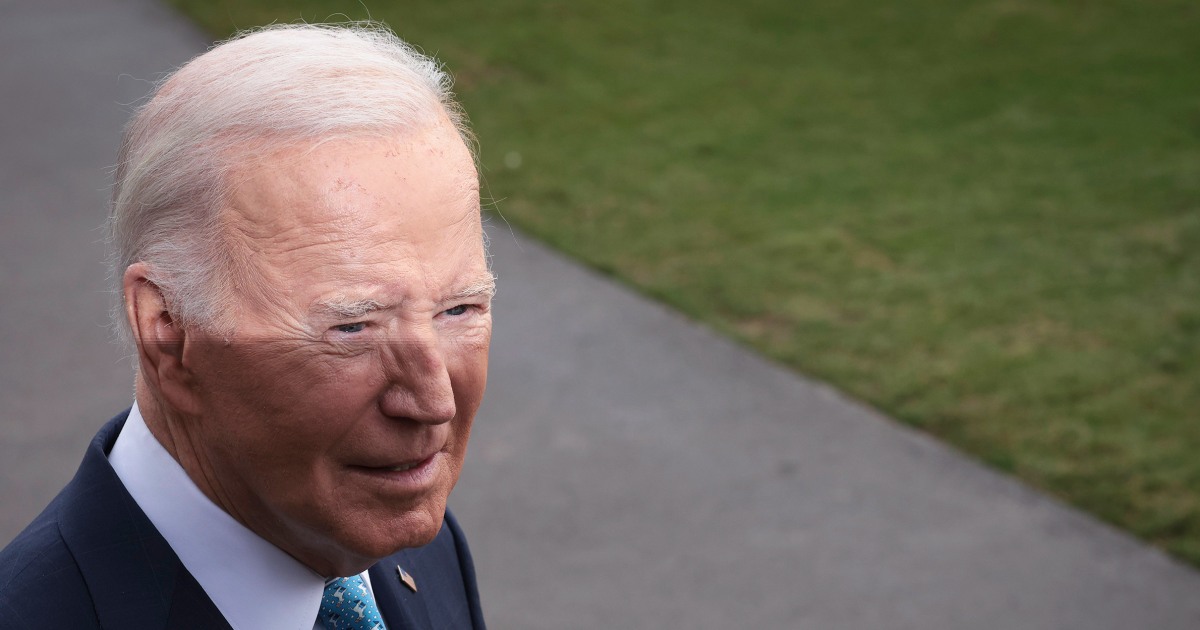Learn about brain health and nootropics to boost brain function
As Biden’s memory issues draw attention, neurologists weigh in

Since a report released on Thursday by special counsel Robert Hur described President Joe Biden as an “elderly man with a poor memory,” there have been significant misperceptions about the cognitive changes associated with aging, neurologists say.
The report on Biden’s handling of classified documents noted that the president hadn’t remembered the exact time frame that he served as vice president and was struggling to recall the period when his late son, Beau Biden, had passed away. Biden defiantly rejected the changes in a press conference late Thursday , saying “my memory’s fine.”
There’s also been scrutiny of other recent events when the 81-year-old president mixed up names of foreign leaders .
However, neurologists say blanking on the names of acquaintances or having difficulty remembering dates from the past, especially when under stress, can simply be part of normal aging.
“If you asked me when my mother passed away, I couldn’t necessarily tell you the exact year because it was many years ago,” Dr. Paul Newhouse, clinical core leader for the Vanderbilt Alzheimer’s Disease Research Center, said.
Almost every older patient has trouble remembering people’s names, Newhouse said.
“I think it’s by far the most universal complaint of every person as they age,” Newhouse said.
In Newhouse’s experience, this type of forgetfulness doesn’t actually predict who ends up having memory disorders. Only a person’s doctor or neurologist can make that diagnosis, not outside observers, brain experts say.
Dr. Dennis Selkoe, co-director of the Ann Romney Center for Neurologic Diseases at Brigham and Women’s Hospital in Boston, agreed that forgetting names doesn’t actually provide much insight into potential memory problems. In fact, stress and a lack of sleep, can interfere with memory, no matter how old someone is.
“Naming proper nouns is not an adequate basis to make a conclusion about whether an individual has a more consistent and more concerning substantive progressive memory disorder,” Selkoe said. What are normal memory changes?
It’s normal for older brains to have more difficulty retaining new information and then retrieving the information, but mental processes like decision-making and judgment can actually improve with age, said Dr. Thomas Wisniewski, director of NYU Langone Health’s Alzheimer’s Disease Research Center and its Center for Cognitive Neurology.
“Although the raw power of memory has some degree of decline, perhaps wisdom can increase because the individual has a greater backlog of experiences and different situations as to what is the best thing to do,” Wisniewski said.
The problem isn’t having trouble remembering names or calling someone by the wrong name, but when someone’s memory is fuzzy about recent or past experiences, said Newhouse. Issues with episodic memory — memory for events in time or if a person doesn’t remember going shopping, for example — can be a sign of a progressive disorder, but not always.
Wisniewski said he becomes concerned when people don’t even recognize that they are forgetting things.
“They forgot that they went shopping and they’re unaware that they’ve forgotten,” he said.
Overall, neurologists tend to worry less about a patient’s ability to remember remote memories from many years ago and more troubled by an inability to recall more recent events. That’s because dementia first affects the part of the brain that’s responsible for short-term memories, as opposed to long-term memories, said Newhouse.
“What I’m more concerned about is, can you remember what happened yesterday? Or an hour ago?” Newhouse said.
While the conversation surrounding aging is often framed around a person’s diminishing memory or executive functioning, there are cognitive benefits that come with growing older, Selkoe said.
“There is a type of emotional intelligence and ability to handle many different kinds of experiences in life that come with greater longevity,” he said. “People can make decisions more carefully and more rationally.”
Akshay Syal, M.D.
Akshay Syal, M.D., is a medical fellow with the NBC News Health and Medical Unit.
Ghael Fobes
Ghael Fobes is an Associate White House Producer with the NBC News White House Unit in Washington, D.C.